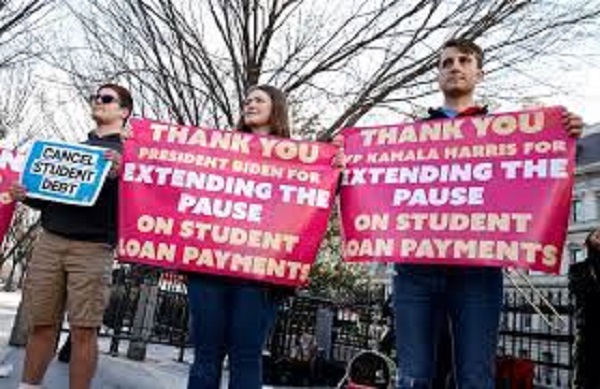
US wants the IMF to reconsider lending fees related to Ukraine's indebtedness.
The newly passed defense funding package includes a clause requiring the United States to seek relief from Ukraine’s debt at the International Monetary Fund.

The U.S. is entrusted, among other things, with pressuring the IMF to reconsider and possibly scrap its policy of adding surcharges to loans to Ukraine.
The World Bank projects that the struggling Ukrainian economy will contract by 35% even with help and that by 2023, the nation will repay the IMF almost $360 million in surcharge fees alone.
There could be difficulties at the world’s lender-of-last resort over one of its largest borrowers as a result of a clause in the newly approved defense funding bill that requires the US to try to reduce Ukraine’s debt load at the IMF.
In order to try and put together a voting bloc of nations that would alter each global development bank’s debt service relief policy regarding Ukraine, the National Defense Authorization Act mandates that American representatives use “the voice, vote, and influence” of the United States in all of these institutions, including the IMF, where the United States is the largest stakeholder.
The U.S. is entrusted, among other things, with pressuring the IMF to reconsider and possibly scrap its policy of adding surcharges to loans to Ukraine. Added costs to loans that are placed on nations with high IMF debt are known as surcharges.
The United States has been providing military and humanitarian help to Ukraine in the tens of billions of dollars since the Russian invasion started in February, which is why it is interested in modifying the strategy. Most recently, as part of a $1.7 trillion government spending agreement, the United States provided $44.9 billion in aid to Ukraine.
A certain amount of U.S. grant money is inevitably used to pay back IMF loans.
Economist Peter Garber, who most recently worked at Deutsche Bank’s global markets research group, said via email that he could understand why the Senate would want to lower the penalty for Ukraine. “As the main financier of economic assistance to Ukraine, the United States would prefer not to provide money that ends up in the IMF’s coffers.”






